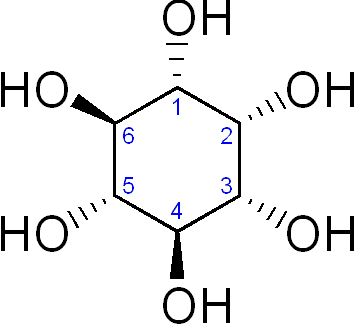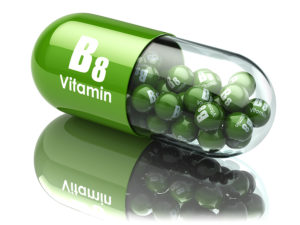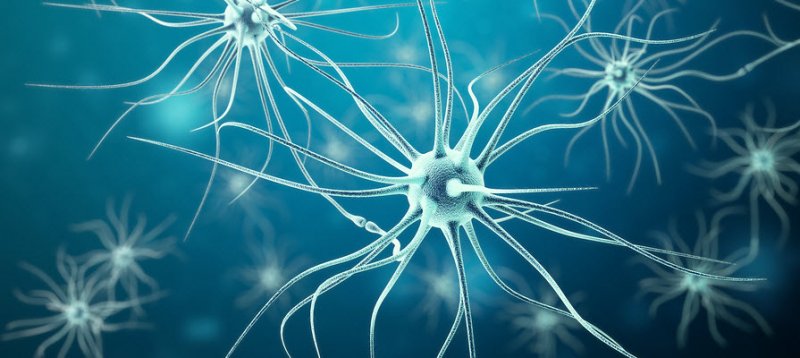Table of Contents
Vitamin B8 (Inositol) is a sugar alcohol and isomer of glucose. As a nootropic, inositol is involved in brain cell signaling, and is a component of cell membranes.
Vitamin B8 is no longer considered a ‘true’ B-Vitamin because your body can make inositol on its own. A “true vitamin” is either essential for life and/or cannot be made by the human body. So inositol no longer qualifies.
Inositol is used in your brain as a “secondary messenger”. It facilitates communication between brain cells. All of your major neurotransmitters need inositol to relay messages.
Inositol is also a component making up the phospholipid ‘shell’ encasing each brain cell. Once again, inositol acts as a messenger of sorts by assisting in the transport of amino acids, proteins and neurotransmitters across and into the brain cell.
Inositol is a ‘group’ of 9 molecules called ‘stereoisomers’. Myo-inositol is the most abundant stereoisomer, making up 90-95% of the total free inositol in your body.
As a nootropic, Vitamin B8 (Inositol) can be used to treat panic attacks and anxiety, depression, Obsessive Compulsive Disorder (OCD), bulimia, depression in bipolar disorder and mood swings.
Vitamin B8 (Inositol) helps:
- Brain Optimization: Inositol helps boost serotonin and dopamine receptor density. Improving the effectiveness of serotonin, GABA, glutamate and dopamine neurotransmitters in your brain.
- Neurotransmitters: Inositol improves the effectiveness of major neurotransmitters in your brain. Boosting alertness, concentration, focus, motivation and memory.
- Mood: Inositol is often used along with popular antidepressant medications improving their effectiveness. Or sometimes even replacing SSRI’s in the treatment of depression, anxiety, panic attacks and OCD.
What is Inositol?
Vitamin B8 (Inositol, cyclohexanehexol) is a sugar alcohol and isomer of glucose found in nearly all animals and plants.
Inositol is a group of 9 molecules called stereoisomers. In this article we’re talking primarily about myo-inositol which accounts for up to 95% of the inositol in your body.

Vitamin B8 is no longer considered a ‘true’ vitamin because our body makes inositol. And we can get it from most types of food.
Myo-inositol is involved in cell-signaling. In the simplest terms, myo-inositol hears from the first neuron that it’s about to fire over a neurotransmitter. And passes that information on to the receiving neuron. Not enough inositol and the neurotransmitter can’t do its job.
Inositol is one busy molecule in your body:
- Myo-inositol affects mRNA which regulates cell volume.[i]
- Phosphatidylinositol signaling pathways control signals inside and outside of brain cells.[ii]
- Inositol plays a role in DNA repair[iii]
- Inositol affects long-term potentiation[iv]
- Myo-inositol is a component of cell membranes
- Myo-inositol regulates cell metabolism
- Myo-inositol regulates cell energy consumption
How does Vitamin B8 (Inositol) work in the Brain?
Vitamin B8 (Inositol) boosts brain health and function in several ways. But two in particular stand out.
- Inositol influences neuroplasticity and neurotransmitters. Transcranial Direct Current Stimulation (tDCS) has been used to treat depression, Parkinson’s Disease, stroke and pain. But the maximum effect of tDCS in the brain was not until several minutes after treatment. Which indicates the effects of tDCS is not by direct neurotransmitter action like you would expect for example if you were using a nootropic.[v]
Researchers concluded the effect of tDCS was best explained by the activation of a ‘secondary messenger system’, and modulation of brain cell membrane proteins.
Neurotransmitters, neuromodulators and hormones have been shown to exert their action via an intracellular (inside the cell) secondary messenger system in which the activated neuroreceptor stimulates the turnover of inositol phospholipids.[vi]
Clinical studies have found that low levels of inositol are present in patients with anorexia, brain disorders and depression.[vii] And abnormal levels of myo-inositol in middle-aged adults can signal the initial stages of cognitive decline such as Alzheimer’s and dementia.[viii]
- Inositol helps reduce anxiety and depression. Long-term potentiation needed for encoding long-term memories, and long-term depression, rely on neural signal transmission and synaptic plasticity. And both are strongly influenced by the myo-inositol and phosphoinositide pathway.[ix]
A meta-analysis and systematic review of clinical studies were evaluated comparing inositol for depression and anxiety disorders. The researchers concluded that inositol was beneficial for treating depression and anxiety.[x]
How things go bad
Inositol is an important component of brain cell membranes. And is critical as a secondary messenger for both intra- and extra-cellular signaling.
 Low inositol levels have been found in those with major depressive disorder, Alzheimer’s, Parkinson’s and other neurodegenerative diseases. Science does not yet know if low inositol is a result of, or contributes to these diseases.
Low inositol levels have been found in those with major depressive disorder, Alzheimer’s, Parkinson’s and other neurodegenerative diseases. Science does not yet know if low inositol is a result of, or contributes to these diseases.
↓ Inositol levels decline
↓ Serotonin and dopamine receptor density declines
↓ Anxiety and depression get worse
↓ Concentration, cognition and memory decline
↑ LDL-cholesterol (bad) and triglycerides increase
↓ HDL-cholesterol (good) levels decline
↑ Inflammation and oxidative stress damage neurons
Vitamin B8 supplementation can help increase the density of serotonin and dopamine receptors in your brain. And improve neurotransmitter signaling. Helping you to cope with stress, lessen depression and improve memory.
Vitamin B8 (Inositol) Benefits
Myo-inositol enhances serotonin neuroreceptor sensitivity.[xi] And several studies have proposed a SSRI-like role for myo-inositol. Researchers believe inositol works as a SSRI because it is a secondary messenger of serotonin.
In other words, inositol gets a message from the 1st neuron that says it wants to send over a serotonin molecule. Inositol picks up that message and lets the receiving neuroreceptor know there’s an incoming serotonin molecule. Serotonin signaling is fixed and depression goes away.[xii]
In some regions of your brain, serotonin acts more like a “neuromodulator” rather than a “classic” neurotransmitter. And can affect glutamate and GABA as well.[xiii]
As a secondary messenger, inositol is an integral part of neuroplasticity and neurotransmitter signaling. Affecting anxiety, alertness, concentration, cognition, depression and all forms of memory.
A large percentage of patients do not respond to SSRI’s when used to treat depression or anxiety. The problem could be depression not related to serotonin or GABA deficiency (they could have a dopamine problem instead).
But if it is serotonin-related depression and there is no response to SSRI’s, inositol may help. Myo-inositol helps relay the messages sent and received by serotonin receptors.
Another problem with SSRI’s like lithium is Serotonin Syndrome. Too much serotonin can be released in the brain which can be toxic and deadly. Or the SSRI can deplete stores of inositol which raises serotonin levels too high.
Once again, inositol comes to the rescue. Researchers found that myo-inositol + lithium alleviated Serotonin Syndrome.[xiv]
Myo-inositol regulates blood sodium levels which helps in the maintenance of healthy myelin sheaths that protect neurons.
Myo-inositol protects your brain from a leaky blood-brain barrier that if left unchecked, would allow toxins produced in your liver to enter your brain.[xv]
Inositol can relieve anxiety and Obsessive-Compulsive Disorder (OCD). Myo-inositol can reduce panic attacks. And inositol can reduce mood swings.
Studies show that inositol is as effective as SSRI’s in treating the symptoms of bulimia and binge eating.[xvi]
Inositol can protect against lung cancer caused by smoking.[xvii]
Myo-inositol increases sperm concentration, total sperm count, and re-balanced follicle stimulating hormone and luteinizing hormone in infertile males.[xviii]
Myo-inositol can help lower LDL-cholesterol (bad-cholesterol), C-reactive protein and blood glucose levels while increasing HDL-cholesterol (good cholesterol).[xix]
Inositol reduces inflammation. Phosphatidylinositol reduces pro-inflammatory cytokines.[xx] And D-chiro-inositol decreases the mRNA expression and secretion of tumor necrosis factor-α, interleukin 6 (IL-6).[xxi]
D-chiro-inositol has anti-aging properties and can extend lifespan.[xxii]
The bottom-line is inositol is a potent pseudo-vitamin and can be a great compliment to any nootropic stack.
How does Vitamin B8 (Inositol) feel?
Inositol makes it easier to fall asleep. Unlike other sleep-inducing nootropics or sleep meds, it doesn’t “knock you out”. Falling asleep is just effortless.
Inositol increases serotonin and dopamine receptor densities. So damage that you may have done to dopamine receptors are repaired (particularly an issue with ADHD stimulant meds). And serotonin is simply more effective. Anxiety decreases, motivation goes up and depression goes away.
Inositol is great for social occasions because social anxiety levels decrease. In fact, inositol outperformed fluoxetine (Prozac®) at reducing panic attacks and can become effective in just a few days. With no side effects.
Some neurohackers feel that supplementing with inositol is the best anti-depressant they’ve every used. The real beauty of inositol is you can safely combine it with the current antidepressant (i.e. SSRI) medication you currently take. Your antidepressant meds may work better!
Inositol is a proven remedy for treating the symptoms of Obsessive-Compulsive Disorder (OCD). You should feel a noticeable reduction in negative thoughts. Some things just won’t bother you as much. And won’t dominate your thoughts so easily.
And inositol is an effective method of taming panic attacks.
Vitamin B8 (Inositol) Clinical Research
Inositol to Treat Panic Attacks
Estimates are that only about 70% of patients respond to standard drug treatments for panic disorder. And many often discontinue the drugs because of negative side effects.
Israeli researchers decided to compare inositol with the SSRI fluvoxamine (Luvox®) for panic disorder. In this double-blind, controlled, random-order crossover study 20 patients completed 1 month of 18 grams per day of inositol and 1 month of 150 mg per day of fluvoxamine.
In the first month, inositol reduced the number of panic attacks per week by 4 compared to only 2.4 for fluvoxamine. Nausea and fatigue were noted with those using Luvox® but not with inositol.
The natural compound inositol was more effective than a SSRI for treating panic disorder.[xxiii]
Vitamin B8 (Inositol) for Depression
A study published in the American Journal of Psychiatry noted that levels of inositol in depressed patients were lower than normal. In this trial, the authors administered 12 grams per day of inositol or a placebo to depressed patients for 4 weeks.
The overall improvement in depression scores was significantly greater than placebo by week 4. And no side effects were noted.
The researchers commented that “this is the first time a precursor strategy for a secondary messenger rather a neurotransmitter” was used in treating depression.
The authors concluded that “inositol had a significant antidepressant effect”.[xxiv]
Another study tried using inositol to treat Premenstrual Dysphoric Disorder (PMDD). PMDD is a particularly nasty form of PMS. It’s a condition in which a woman has severe depression, irritability and tension before menstruation.
Scientists don’t really know what causes PMDD except it has something to do with serotonin. Serotonin is the “calming neurotransmitter”. When it fails for any reason you get depressed, irritable, obsessive, negative and worried.
In this 2-phase clinical trial, PMDD patients were given myo-inositol in powder form, or a soft-gel capsule equivalent to 2 grams of myo-inositol.
The results showed a significant improvement on 3 different scales of measuring depression. Inositol significantly improved PMDD and associated depression, irritability and tension.[xxv]
Vitamin B8 (Inositol) for OCD
Inositol is good for treating Obsessive-Compulsive Disorder (OCD). OCD is a type of anxiety characterized by unwanted, recurring thoughts and behaviors.
One double-blind, controlled crossover trial treated 13 OCD patients with 18 grams per day of inositol for 6 weeks.
The OCD patients had significantly lower scores on the Yale-Brown Obsessive Compulsive Scale when taking inositol than when taking placebo.
The authors concluded that “inositol is effective in depression, panic, and obsessive-compulsive disorder, a spectrum of disorders responsive to selective serotonin reuptake inhibitors (SSRI’s)”.[xxvi]
Vitamin B8 (Inositol) Recommended Dosage
Recommended dosage for inositol is up to 3 grams per day. Typically split into 3-doses of 1 gram each. One in the morning, one at noon, and your final dose before bedtime.
Clinically effective dosage for depression and anxiety is up to 12 grams per day. Split your dose into 3-times per day. 4 grams in the morning, 4 grams at noon and 4 grams prior to bedtime.
Clinically effective dosage for OCD is up to 18 grams per day. Split into 3 equal doses of 6 grams each.
The clinical dosages mentioned here are the ones used in clinical trials. Most people experienced relief of symptoms within 3 months. Some people showed improvements within a week or sooner.
Important note: It may not be necessary for you to go as high as 12 or 18 grams per day. Inositol could be just as effective for you in much smaller doses.
Most neurohackers notice benefits when taking 3 – 4 grams per day or less.
Vitamin B8 (Inositol) Side Effects
Vitamin B8 (Inositol) is non-toxic. So is considered well-tolerated and safe.
Higher doses like those used in clinical trials could result in flatulence, stomach upset, nausea, diarrhea, increased mood swings for bipolar or psychosis patients.
If you’ve been diagnosed with bipolar or bipolar-spectrum disorder, please consult a pharmacist or your doctor before using inositol.
Studies have shown and neurohackers verify that inositol supplementation may reduce testosterone levels and libido. Most of the Low-T reports were by woman but I’ve heard a few men reporting Low-T and libido from inositol as well.
Types of Vitamin B8 (Inositol) to Buy
Inositol is available in capsules, softgels, and in powder form.
Inositol powder is the least expensive way to supplement with this nootropic. Inositol is basically a sugar so it tastes sweet. Not as sweet as sugar but it tastes good on its own. Or mixed in your favorite beverage.
Lecithin is comprised of both inositol and choline. So lecithin as a supplement will provide you with inositol.
Inositol is often supplied by supplement manufacturers as “inositol + choline”. The thinking behind this combined supplement is that inositol compliments the effects of choline.
When inositol and choline are used together, they are supposed to improve nerve function and help you metabolize cholesterol.
The combination of Myo-Inositol & D-Chiro Inositol is often marketed to women who are dealing with Polycystic ovary syndrome (PCOS).
But high doses of choline can leave you depressed and sleepy. So if you want to add inositol to your nootropic stack, I suggest you avoid the combination and go with straight inositol.
Some multivitamins also include some form of Vitamin B8 (Inositol) in their formula. But many of these multis don’t contain enough for optimum health. And many have an isolated or synthetic version of this nutrient.
The Click for Performance Lab® Multi offers a nature-identical form of Vitamin B8 (Inositol) and is now my favorite daily multivitamin/mineral supplement.
I prefer the Performance Lab® multi because it’s more potent, it’s biologically active and I’ve found to be a far more effective multi compared to every other multivitamin supplement I’ve ever used.
Performance Lab® uses their own priority NutriGenesis® vitamins and minerals which are grown on probiotic, plant and yeast cultures in a state-of-the-art lab.
Nootropics Expert Recommendation
Vitamin B8 (Inositol) up to 3 grams per day
 I recommend using Vitamin B8 (Inositol) as a nootropic supplement.
I recommend using Vitamin B8 (Inositol) as a nootropic supplement.
Your body does make Vitamin B8 on its own. And you get it from food. So it is unlikely that you are inositol deficient. But if you want to try inositol for its anti-anxiety and antidepressant benefits, you must take it as a supplement.
Inositol is especially helpful for those suffering from anxiety, depression, panic attacks, or OCD.
Experience shows Inositol helps stop and reverse the symptoms associated with high cholesterol levels. B8 will lower ‘bad’ LDL-cholesterol as well as raise ‘good” HDL-cholesterol.
Vitamin B8 is also particularly helpful to quell anxiety caused by social situations.
Vitamin B8 can help you get a good night’s sleep. Many find it more effective than sleep meds and other nootropics used for sleep. You’ll awaken feeling refreshed and calm. Ready to start your day.
The recommended dosage of Vitamin B8 (Inositol) is up to 3 grams per day. But start at a gram or less, and work your way up depending on how you feel. Clinical doses of 12 or 18 gram are usually not needed for most people.
At the very minimum every neurohacker should be using a multivitamin every day that includes Vitamin B8 (Inositol). The best multi I’ve found and use every day is the Click for Performance Lab® Multi for men or women.










Join The Discussion - 213 comments
Sharon Vander Zyl
December 30, 2020
Inositol has been suggested to my husband to help him with fatigue, tremors, restless legs, feelings of wanting to escape/explode and nightmares. Suggested dose is 1000 mg TID. From this article it looks like you recommend it more for mental health problems like depression and anxiety. What do you think of this recommendation for him?
David Tomen
December 30, 2020
Sharon, you didn’t mention who recommended Inositol to your husband. But it is certainly worth trying. The only downside he may not like is the potential for lowering libido in men. This side effect does not affect everyone.
I suggest you carefully read through this entire review from top to bottom and consider all the clinical evidence. As well as what people are saying about how they feel when they use Inositol. The only way you’ll know if it works or not is to try it.
Nancy
December 24, 2020
David could you tell me please according to your experience in which cases it is more advisable to supplement with Taurine than with Inositol?, Since they share the effects of anti anxiety and both help sleep … I consume 100 Mg of Inositol in my Life Extension B Complex but I do not supplement with taurine
David Tomen
December 26, 2020
Nancy, Inositol is very different than Taurine in how it works in your brain. And both are necessary.
Look at the “Overview” section of each supplement. And then the “To The Rescue” sections. There are several very specific reasons why you would use Inositol including anxiety, OCD, depression, and to support SSRI use.
Taurine is more of a longevity/anti-aging supplement and used by many for energy and combating chronic fatigue among many other issues.
But to get the benefit for each you need to use recommended dosages. For Myo-inositol it’s up to 3 grams per day. And for Taurine it’s 500 mg – 2 grams per day.
I suggest experimenting with recommended dosages for both. Test them separately to make sure you don’t have a bad reaction. And if both work well for you then use both.
Nancy
December 30, 2020
Thanks For Andwer me David, I take Ibuprofen to combat headaches due to lack of sleep, I use it twice or sometimes three days a week and it is very effective for me, does that have serious consequences for my health? Paracetamol is just as bad?
David Tomen
December 30, 2020
Nancy, the side effects for both of these drugs are serious and worth taking into consideration. I’m not a doctor and cannot advise you if you should use them or not. That is entirely up to you.
But I highly recommend carefully reading through the entire list of potential side effects for each drug. One site I find trustworthy is drugs.com which was founded by two New Zealand pharmacists. They have good descriptions for both drugs including side effects and contraindications with other drugs and supplements.
Shawn
December 17, 2020
Does inositol lower blood sugar? Can I take it with “neem” a herb that supposedly lowers blood sugar as well
David Tomen
December 17, 2020
Shawn, Myo-inositol can help lower LDL-cholesterol (bad-cholesterol), C-reactive protein and blood glucose levels while increasing HDL-cholesterol (good cholesterol). You could use it with another blood sugar lowering supplement. But be careful you don’t lower it too much.
Rifat
December 16, 2020
Hi David,
I appreciate your help in answering all of my questions on other articles! You say that it impacts libido by lowering T levels. I am buying this nice B-complex with only 300 mg of Myo-inositol per serving. Should I be worried about lower T levels and lower libido? Or is that such a small dose per day that it won’t do anything like that?
Thank you!
Rifat
David Tomen
December 17, 2020
Rifat, it’s highly unlikely you need to worry about 300 mg of myo-inositol affecting T-levels. It’s when you start using 3 grams per day that there “may” be some concern.
Tania
November 22, 2020
Hi David, I have a 12 year old who has always struggled with emotional regulation. In particular the moment he feels threatened/worried he will become angry. It has become increasingly obvious he is very anxious – he is refusing to go to school, unmotivated, moody, aggressive. Is inositol safe for him to take? Is 3 gram too much? Or should I be looking elsewhere?
David Tomen
November 23, 2020
Tania, Inositol should be safe but I suggests starting with a much lower dose first. Something like 1 gram per day. Possibly split into two 500 mg doses.
The symptoms you are describing sound ba lot like ADHD. I highly recommend that you get a really good psychiatrist to confirm this. Or if it’s something else.
Please do NOT wait. I wasn’t diagnosed Adult ADD until much later in life. I wonder how my life and career would have been different if this diagnosis had come much earlier. But my parents didn’t know.
Dominic
December 23, 2020
Tried to contact you by email for a one 2 one. But kept failing.
Wanted to discuss getting a perfect stack for learning and focus.
David Tomen
December 24, 2020
Dominic, are you asking Tania for advice. Or would you like me to make some suggestions?
Daniel
October 12, 2020
Hi Dave, would you know of any reason that I can’t tolerate inositol? Even at 1g spread throughout the day, it gives me heart palpitations, nerve pain, and a flushed appearance similar to niacin.
David Tomen
October 13, 2020
Daniel, are you or have you been diagnosed with bipolar or bipolar-spectrum disorder? That is one possibility.
If not that, remember that Inositol helps boost serotonin and dopamine receptor density. Which improves the effectiveness of serotonin, GABA, glutamate and dopamine neurotransmitters in your brain. You could be causing an imbalance of one of those neurotransmitters.
Janet Merrick
November 6, 2020
Hi Daniel – I have Parkinson’s and have had the same response – so severe that I went to the hospital. It definitely affected the efficacy of my dopamine replacement medication – carbidopa/levodopa.
Bob
August 14, 2020
You have mentioned several times that Inositol helps boost serotonin and dopamine receptor density.
Do you have a reference for this?
I tried googling it but got millions of results and didn’t have much luck confirming it or finding out how this happens.
David Tomen
August 14, 2020
Bob, it’s here: https://www.researchgate.net/publication/223426567_Chronic_inositol_increases_striatal_D2_receptors_but_does_not_modify_dexamphetamine-induced_motor_behavior_Relevance_to_obsessive-compulsive_disorder
Bob
August 16, 2020
Thanks for the link
Though it seems to be mostly Dopamine D2 receptors with a “slight, albeit insignificant” increase in serotonin 5HT2 receptors.
Hakan
July 30, 2020
Hi David,
Again a great article! I decided to add inositol to my stack. As you may know i couldn’t find alpha gpc or citicoline in my country, so i am still searching for it.
So will using lecithin, replace the need of inositol and citicoline? How much inositol and choline does lecithin contain?
Also which lecithin form would you recommend?
Thanks
David Tomen
July 30, 2020
Hakan, lecithin will NOT do it. No matter what the supplement companies say. See if you can find some other source of choline. Like choline citrate or choline bitartrate. Either of those would be better than lecithin.
Hakan
July 31, 2020
Oh ok. I can only find choline chloride so it is not useful right?
David Tomen
August 1, 2020
Hakan, I personally would not take the chance. Because choline chloride is sold as an industrial chemical. And there is a high chance that it is contaminated with heavy metals.